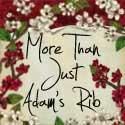It's not often God gives a front row seat to a nature lesson about the parable of the soils. Even less often that He makes me feel pink-cheeked foolish in what I've been trained in since childhood--gardening.
My parents and in-laws have taught me about soil--about what plants need what kind, about why back filling with the original soil is better than with a mixture of potting soil, about where to take a sample if something isn't growing that should be. Last week, I even
had my father-in-law take the old John Deere and scrape away the hard red
clay he had kindly shored-up the garage slab with last year because I knew my new flower beds would fail if composed of this natural concrete.
And yet, even with all this knowledge, I made a mistake, murdered a few trees in the process, and was humbled once again.
***
One afternoon this past winter, my mother stood by the "swamp" and commented about the pine trees growing near the murky, kidney-shaped pool of water.
My tongue instantly started wagging in self defense. Those weren't pine trees. They were cypress trees, and dying ones at that. The paper that accompanied the wad of saplings husband and I had planted the previous winter said so.
"No," she reiterated, confident in her assessment. "They're pine trees."
In the back of my mind, I had thought the same thing last summer but had convinced myself I was wrong. Walking over, I stooped low, ran my fingers down the soft yellowing bristles before drawing them to my nose. Sure enough, the scent of pine was strong.
I immediately stood and looked to the far back of the property where a dozen leafless sticks shot up out of the ground. Suddenly, last summer's tree drama with the drought made perfect sense.
Without leaves and the identifying sap-smell of evergreens, the trunks of the two-year-old loblolly pine and cypress saplings had looked identical in the bag, both rough to the touch, sloughing off their skin like growing caterpillars. And so, I had mistakenly planted the pines in the ever-moist soil that killed one and left the others with a sickening yellow hue. The water-craving cypress trees had gone to the far back with its dry, dusty soil, airy frond leaves wilting with every afternoon sun.
That very day, I dug up every cypress and pine tree, moving back to front and front to back, all the while wondering if it was too late.
It wasn't.
As we enter a second summer, every struggling sapling is now thriving since being placed in the right soil.
But ever since my simple mistake, I've been drawn to the parable of the soils.
In Jesus' parable, a farmer scatters seed to have some eaten up or trampled on when it falls on the path, some sprout and wither when it falls on dry, rocky ground; and some being choked out by thorns. Only the seed that "fell on good soil...came up and yielded a crop, a hundred times more than sown" (Luke 8:8).
Christ then explains that the seed is the Word of God, the different soils reflecting the heart of those who receive the Word:
Those
along the path are the ones who hear, and then the devil comes and takes
away the word from their hearts, so that they may not believe and be
saved. Those
on the rocky ground are the ones who receive the word with joy when
they hear it, but they have no root. They believe for a while, but in
the time of testing they fall away. The
seed that fell among thorns stands for those who hear, but as they go
on their way they are choked by life’s worries, riches and pleasures, and they do not mature. But
the seed on good soil stands for those with a noble and good heart, who
hear the word, retain it, and by persevering produce a crop. (v. 12-15).
I wonder about the farmer spreading seeds on rocky ground. I wonder about him even more when I hear he scattered some on the path (?!?) Surely, this farmer didn't intentionally, knowingly spread seed on bad soil. Did he?
I think the answer is "yes" in the allegorical sense, because he didn't know. He didn't have eyes to see.
***
Each week, my pastor, my children, several other warriors, and I prayer walk, going door to door in the neighborhoods within a five mile radius of our church. We pray for each home, each family. We pray for the Word of God we leave behind to take root in their hearts and flourish.
Yet, we are like that blind farmer, throwing seed on the path, on rocky, thorny, and parched ground. There's no way for us to know. There's no way for me to know.
The home whose front yard was covered with tombstones and a bloodied plastic baby doll for Halloween may be the best soil in the neighborhood on which to plant seeds. The half a million dollar home with its well-manicured lawn and concrete drive may be the most parched soil.
I can't know.
And in that acknowledgement comes God's voice, reminding me that sometimes I can't tell where the seed will thrive and where it will wither and die. But that's not my job.
The only task He has called me to is to spread the seeds to the four winds, not pick and choose whose hearts I think are ripe for the planting.
Friday, May 4, 2012
Subscribe to:
Post Comments (Atom)










No comments:
Post a Comment